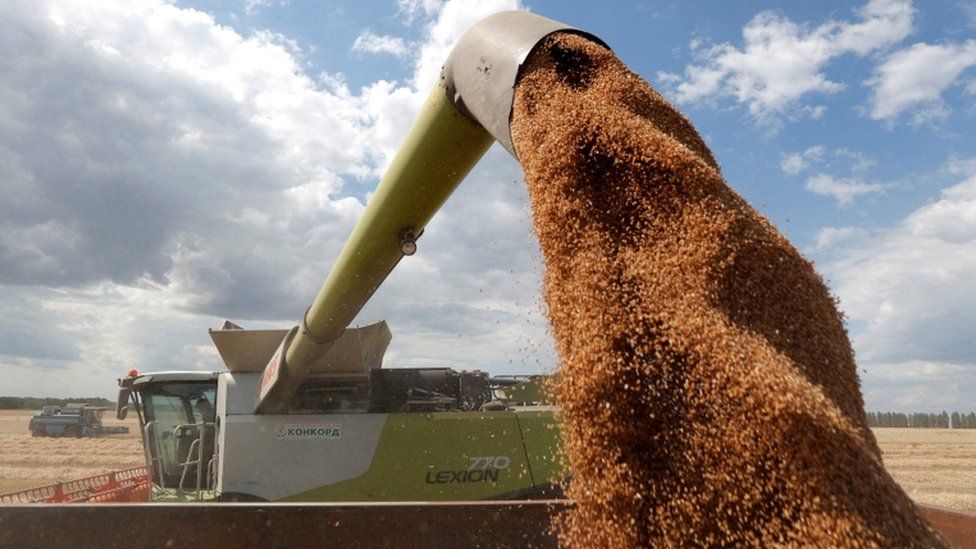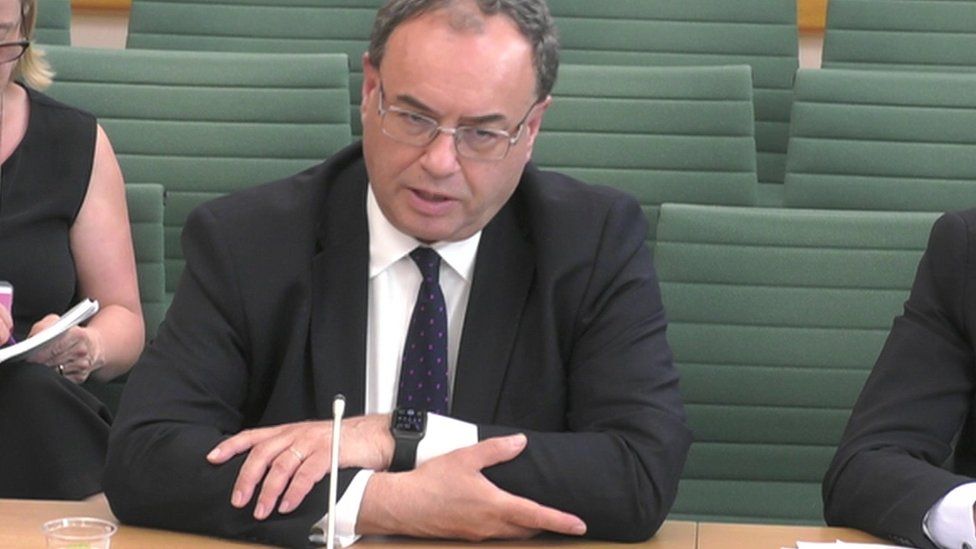
The possibility of more rises in food prices is a “major worry” for the UK and other countries, the Bank of England governor has warned.
Apologising for sounding “apocalyptic”, Andrew Bailey said the war in Ukraine was affecting food supplies.
Mr Bailey also defended the Bank’s performance following criticism it has not done enough to try to rein in rising prices.
Inflation – the rate at which prices rise – is at a 30-year high.
Mr Bailey warned that that a “very big income shock” from the increase in global goods prices would hit demand in the economy and push up unemployment.
He also said that difficulties shipping out food supplies from Ukraine could hit world supplies of wheat and cooking oil.
World wheat prices have risen 25% over the past six weeks.
“There’s a lot of uncertainty around this situation,” Mr Bailey said.
“And that is a major, major worry and it’s not just I have to tell you a major worry for this country. There’s a major worry for the developing world as well. And so if I had to sort of, sorry for being apocalyptic for a moment, but that is a major concern.”
Mr Bailey warned that price rises in food and energy would have a much bigger effect than any rise in interest rates.

With the government coming under intense pressure over the cost of living crisis, there have been reports that some Cabinet ministers are unhappy with the Bank’s performance and have questioned whether should keep its independence.
Inflation hit 7% in March, and figures due out later this week are expected to show the rate climbed higher in April.
The Bank has warned inflation could hit 10% by the autumn, well above its 2% target.
Appearing before the Treasury Select Committee, its chair – Conservative MP Mel Stride – put to Mr Bailey the criticism that the Bank had been “asleep at the wheel”.
In response, Mr Bailey emphasised that he was not happy about the high rate of inflation, adding: “This is a bad situation to be in.”
But he insisted that most of the above-target inflation was due to global prices not domestic factors.
“80% of the overshoots over the target… is due to energy and tradable goods,” he said.
Asked whether he has felt helpless given the situation, Mr Bailey admitted he had.
“It’s a very, very difficult place for us to be in,” he said.
But he defended himself against questions over whether he could have done things differently, saying: “I don’t think we could. I don’t think we could foresee a war in Ukraine.”
He pointed to a further wave of Covid, particularly in China, as another factor putting pressure on prices.
Recession fears
The surge in the cost of living has led to households cutting back their spending, which is hitting growth.
The Bank recently raised interest rates to try to stem the pace of rising prices.
Rates rose to 1% from 0.75% earlier this month, their highest level since 2009 and the fourth consecutive increase since December.
The Bank’s policymakers now expect the UK economy to shrink rather than expand in the final three months of this year. It is also expected to contract by 0.25% in 2023, down from its previous forecast of 1.25% growth.
While that would not technically be a recession – defined as the economy getting smaller for two consecutive quarters – it would leave the UK at a real risk of one.
